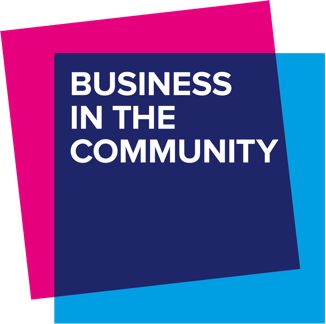Opening Doors to Diverse Talent
Opening Doors is Business in the Community’s (BITC) flagship inclusive recruitment campaign, which calls on employers to change how they recruit to help make 2 million jobs more inclusive by 2025.
How adopting inclusive recruitment processes can benefit your business:
Five keys to inclusive recruitment
- Reach a more diverse talent pool: which is proven to be beneficial for business (McKinsey, Diversity Wins).
- Fill vacancies: 57% of employers reported hard-to-fill vacancies at the start of 2023 (CIPD).
- Attract and retain staff: research suggests employees are more likely to apply for jobs at companies prioritising diversity and inclusion (Deloitte, 2018 and Stanford University 2023).
Business in the Community’s (BITC) inclusive recruitment campaign, Opening Doors, calls on employers to change how they recruit to help make 2 million jobs more inclusive by 2025.
Barriers to Work
- 22% of businesses would close their doors to disabled people 2
- 35% of businesses would close their doors to refugees 3
- 35% of businesses would close their doors to education leavers 4
- 58% of businesses would close their doors to homeless jobseekers 5
- 55% of businesses would close their doors to people with criminal convictions 6

Ready to become an opening
doors employer?*



* Employers that sign up to be an Opening Doors employer commit to at least
three specific actions across our five keys to inclusive recruitment.
(1) Create (2) Show (3)Use (4)Focus (5)Prioritise
Learn more about the five keys


Create
partnerships that connect untapped talent to your jobs.


Show
candidates that you are committed to inclusion.


Use
comprehensive job descriptions with inclusive language


Focus
on the essential skills needed for the job.


Prioritise
accessibility and bias elimination.
KEY 1 – Create partnerships that connect untapped talent to your jobs
Create partnerships that connect untapped talent to your jobs
- Partner with organisations that support disadvantaged groups into work
By disadvantaged groups, we mean people who are disadvantaged in the labour market, for example: disabled people, ex-military, people with convictions, people who have experienced homelessness, long-term unemployed, older workers, refugees, survivors of modern slavery, young people, and carers. This list is not exhaustive, and you may identify other groups you would like to support into work, including those facing intersectional barriers.
Download our toolkit to find out more about creating partnerships that connect untapped talent and jobs.
KEY 2 – Show candidates that you are committed to inclusion
Show candidates that you are committed to inclusion.
- Advertise jobs on channels that target diverse groups
- Train hiring managers on inclusive recruitment
- Ensure suppliers adhere to your inclusive recruitment ambitions
- Publish your values, charters and commitments
- Use diverse images and role models in your communications
KEY 3 – Use comprehensive job descriptions with inclusive language
Use comprehensive job descriptions with inclusive language
- Remove jargon
- Use neutral language
- Include all essential information
- Provide details of relevant HR policies
- Be clear about what the role entails
- Publish the stages and timeframes of the application process
KEY 4 – Focus on the essential skills needed for the job
Focus on the essential skills needed for the job.
- Ask for skills rather than experience and qualifications
- Only ask for skills that are essential for the role
- Recognise non-traditional or informal work experience
- Value non-UK experience and qualifications
- Ensure each stage of assessment is appropriate for assessing skills
KEY 5 – Prioritise accessibility and eliminate bias
Prioritise accessibility and eliminate bias
- Remove the criminal record question from the first stage of recruitment
- Include diverse colleagues on interview panels
- Ask all candidates if they need any adjustments
- Accept applications in a range of formats
- Specify if the role allows any form of flexibility
- Provide information in accessible formats and different languages
- Ensure the application process is mobile-friendly
- Collect diversity data to identify barriers for jobseekers
Each of these keys is associated with a range of actions employers can take. We are asking employers to commit to three actions or more to make recruitment more inclusive. Are you ready to become an Opening Doors employer?



Ready to become an opening
doors employer?*



Opening Doors: Member spotlight




“We are committed to making Heathrow a ‘great place to work’,” explains Bal Gill, Heathrow’s Resourcing Delivery Manager. “We have an ambition to be a truly inclusive organisation, representing the diversity of our local community at every level of the business. We’ve made some great progress to date, but we know that there is always more that we can do, which is why we were delighted to be one of the earliest signatories of the Opening Doors campaign. By working with BITC and a cross-section of our peers, we’re confident that we can continue to strengthen our capability and determination.
Key resources and campaign endorsers
Key Resources
- How to Inspire, Hire and Grow Diverse Talent
This toolkit provides practical guidance to help businesses inspire future talent, develop inclusive recruitment processes and provide an enabling work environment to help employees thrive. - Opening Doors:FAQs
Find out about the BITC inclusive recruitment campaign: Opening Doors, its aims and objectives, and its ask of employers. - Ban the Box employers guide
Ban the Box employers publicly commit to fairly assessing criminal convictions; judging candidates first and foremost on the basis of their skills and suitability for a role, rather than their past mistakes. - How to Ensure Online Recruitment is Accessible and Inclusive
This factsheet highlights examples of good practice, showing businesses how to ensure their approaches to virtual recruitment are not inadvertently creating barriers. - Supporting Neurodiversity at Work
This factsheet aims to raise awareness of the barriers faced by neurodiverse people, set out the business case for employers to develop targeted interventions that support neurodiversity in the workplace, and inspire action by providing examples of existing best practice.
Key Campaign Endorsers
Thank you to our key campaign endorsers who have committed to contributing their insight and expertise as we deliver the campaign over the next three years.
Download the list of Key Campaign Endorsers.
The List
Frequently Asked Questions
The process is similar to expressing interest in the Opening Doors campaign. Navigate to the form on the link below. Complete and submit, and a team member will contact you to discuss next steps.
Express your interest and commitment at
Opening Doors for Refugees
BITC members benefit from a range of support to help them achieve the campaign asks,
including the following:
- Advisory services – topics include inclusion, partnerships & social impact
- Employment programmes
● Job Coaching – (national)
● STEP programme supporting Refugees (Yorkshire & Humber, Bristol and
Coventry) Y&H – Leeds, Sheffield and Bradford - Content – Inclusive Employment toolkit, case studies and best practice guides
- Events – webinars, peer learning forums, leadership roundtables
- Regions & nations – connecting to partners & responding to local need
Don’t hesitate to contact your BITC Relationship Manager for more details.
For more information, please email the Opening Doors campaign team
Once you have submitted your expression of interest, a member of
the team at BITC will share the campaign sign-up form. You will be asked to tell us:
- which actions you will be taking forward (minimum of three from across the five keys )
- an estimate of the number of roles that will be impacted by each action
- the anticipated date of completion.
We ask for this information so we can provide support to help you take action and track
progress towards our goal of two million roles influenced by the campaign.
Business in the Community’s Untapped Talent Advisory Group
Meet the group
Asda: Lynsay Holland, Future Talent Programmes Manager
Boots UK: Donna Hodgins
Capita: Lisa Pinfold, Head of Talent and Succession
CIPD: Jemeela Quraishi, Social Impact and Innovation Lead
City and Guilds: Abbas Jaffer
Deloitte: Jessica Jones, Head of Assessment and Capability
DWP: Sue Scanlon
Jacobs: Greg Harris, Consultant
Jacobs: Katie Hughes
JTI: Sinead Devereux
National Grid: Fergus Hynd
Thames Water: Karima Khandker, Head of Resourcing, Skills and Emerging Talent
References
1 22% would close their doors to disabled people (PageGroup, 2021)
2 BITC research with YouGov, (2020).
3 Hiring’s new red line: why newcomers can’t land 35% of “entry-level” jobs (LinkedIn, 2021).
4 Four out of 10 employers admit they would likely seek to terminate an employee’s contract if they were homeless, (Crisis, 2021).
5 Shifts in UK employer attitudes to hiring people with convictions, (Progress & Prejudice, 2022).
